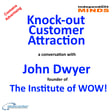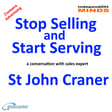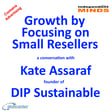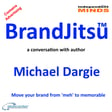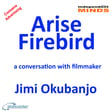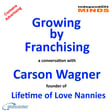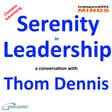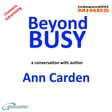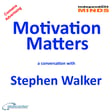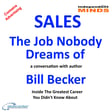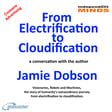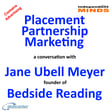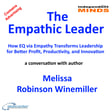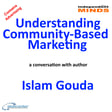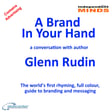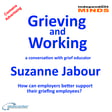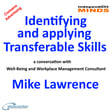
Character Determines Performance at Work – a conversation with David Carter
At the time of recording David Carter was the CEO of Entelechy Academy a company that identified the connections between the character of an individual and their performance at work. David is now leading another business.
David is a serial entrepreneur who has established and successfully exited several businesses.
In this episode of the Abeceder podcast The Independent Minds, David host Michael Millward about how when he was working in venture capital, his fascination with the way similar companies develop in difference ways developed.
Michael and David successfully define character, and how individuals develop their character and how this then influences how they work.
David explains the difference between soft skills and character and the close connections between they share.
Researching this relationship led David to build an assessment tool that helps individuals identify their individual character strengths and weaknesses.
More information about David Carter and Michael Millward is available at abeceder.
Audience Offers
The Independent Minds is made on Zencastr, because as the all-in-one podcasting platform, Zencastr really does make creating content so easy.
If you would like to try podcasting using Zencastr visit zencastr.com/pricing and use our offer code ABECEDER.
Travel
With discounted membership of the Ultimate Travel Club, you can travel anywhere at trade prices on flights, hotels, trains, and many more travel related purchases.
Fit For Work Look after your health and you will be fit for work.
No point in being in a great job if you are in poor health. That is why we recommend The Annual Health Test from York Test; a 39-health marker Annual Health Test conducted by an experienced phlebotomist with hospital standard tests carried out in a UKAS-accredited and CQC-compliant laboratory.
A secure Personal Wellness Hub provides easy-to-understand results and lifestyle guidance
Visit York Test and use this discount code MIND25.
Visit Three for information about business and personal telecom solutions from Three, and the special offers available when you quote my referral code WPFNUQHU.
Being a Guest
We recommend the podcasting guest training programmes available from Work Place Learning Centre.
We use Matchmaker.fm to connect with potential guests If you are a podcaster looking for interesting guests or if you have something interesting to say Matchmaker.fm is where great guests and great hosts are matched and great podcasts are hatched. Use our offer code MILW10 for a discount on membership.
We appreciate every like, download, and subscriber.
Thank you for listening.
